 A car that won’t start is a major inconvenience; a car that won’t stop is a death machine. It’s important to maintain the health of your brake system for the safety of you and those around you. There are some warning signs to look out for that will alert you when your brake pads need to be looked at. Here’s a basic overview:
A car that won’t start is a major inconvenience; a car that won’t stop is a death machine. It’s important to maintain the health of your brake system for the safety of you and those around you. There are some warning signs to look out for that will alert you when your brake pads need to be looked at. Here’s a basic overview:
High-pitched squealing noise:
All modern brake systems contain a metal plate, called an indicator, which emits a high-pitched squealing noise when the brake pads are worn. This sound can be heard even when the windows are closed. If you tend to blast music the entirety of your car ride, make a note to turn it down a couple minutes every once in a while; listening to your car run can be a great way to assess its health.
Harsh grinding sound:
This is what happens when you ignore your indicator for too long; at this point your brake pads have completely worn off. Once you hear this sound, cease regular driving immediately and take your car into the shop.
Steering wheel pulls to one side:
This can have a few potential causes; two of which are unevenly worn brake pads and something foreign in your braking fluid. Your local auto-shop will be able to identify what needs to be repaired/replaced.
Excessive brake dust:
As your brake pads wear down, shavings of black, grimy dust make their way onto your wheel. If you see this build up quickly over a short period of time, then your brake pads are wearing out fast.
Any of these signs are a good indication that you need to take your vehicle in for inspection. Here at LA NTX Transmissions, we offer brake repair alongside a host of other auto-related services. For more information, please give us a call at (310) 672-8131.

 Regular oil changes are necessary for the upkeep of your vehicle’s engine. Generally, the rule of thumb is to take your car in for a change every 3,000 miles. Here’s how oil changes help keep your ride running smoothly:
Regular oil changes are necessary for the upkeep of your vehicle’s engine. Generally, the rule of thumb is to take your car in for a change every 3,000 miles. Here’s how oil changes help keep your ride running smoothly: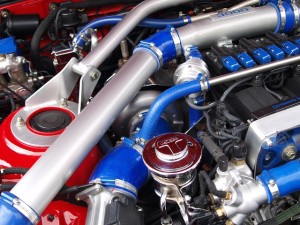 The holiday season can be a stressful time for many people. They could be tight on money due to Christmas expenses, and the last thing they want to think of is putting money and time into their car for service work. L.A NTX Transmissions is here to provide their clients with quality automotive services offered at a fair price. Take advantage of our free diagnostic service so you can quickly identify the issue without wasting your time.
The holiday season can be a stressful time for many people. They could be tight on money due to Christmas expenses, and the last thing they want to think of is putting money and time into their car for service work. L.A NTX Transmissions is here to provide their clients with quality automotive services offered at a fair price. Take advantage of our free diagnostic service so you can quickly identify the issue without wasting your time. With gas prices well over the $3 mark, every vehicle owner is striving to become as fuel efficient as possible. If you have wondered how you can increase your miles per gallon when driving, check out our fuel efficiency tips. By following these easy guidelines you can save yourself from spending more than you need to at the pump.
With gas prices well over the $3 mark, every vehicle owner is striving to become as fuel efficient as possible. If you have wondered how you can increase your miles per gallon when driving, check out our fuel efficiency tips. By following these easy guidelines you can save yourself from spending more than you need to at the pump.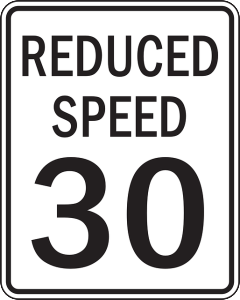 Stomping on your accelerator can cost you greatly in fuel efficiency. It has been calculated that for every 5 miles you go over 60 mph you are losing the equivalent of an extra $.20 a gallon. And when you brake excessively and accelerate rapidly you will make this situation even worse. Save racing for the track. Instead, when you are going places accelerate gently and slowly. Choose a speed that is safe, but consistent.
Stomping on your accelerator can cost you greatly in fuel efficiency. It has been calculated that for every 5 miles you go over 60 mph you are losing the equivalent of an extra $.20 a gallon. And when you brake excessively and accelerate rapidly you will make this situation even worse. Save racing for the track. Instead, when you are going places accelerate gently and slowly. Choose a speed that is safe, but consistent.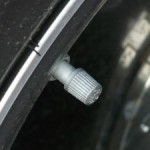 Under inflated tires can reduce your gas mileage by up to 25%! Check your tire pressure and ensure it is at the recommended level. Properly inflated tires will save you money at the pump. However, over inflated tires will not get better gas mileage. Fill them only to the manufacturer’s recommendation.
Under inflated tires can reduce your gas mileage by up to 25%! Check your tire pressure and ensure it is at the recommended level. Properly inflated tires will save you money at the pump. However, over inflated tires will not get better gas mileage. Fill them only to the manufacturer’s recommendation.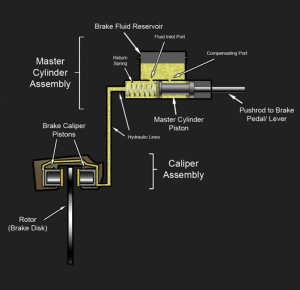
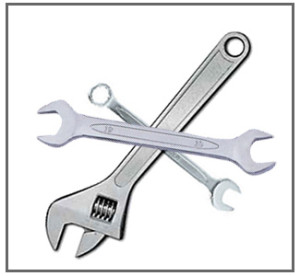 Summer is right around the corner which means there’s no better time to take your car into L.A. NTX Transmissions to get an auto tune-up on your car or truck in Inglewood. The frequent traveling and hot temperatures during the summer months can put some added stress on your vehicle so it’s best to have it tuned up to prevent any potential problems further down the road.
Summer is right around the corner which means there’s no better time to take your car into L.A. NTX Transmissions to get an auto tune-up on your car or truck in Inglewood. The frequent traveling and hot temperatures during the summer months can put some added stress on your vehicle so it’s best to have it tuned up to prevent any potential problems further down the road. Befor
Befor